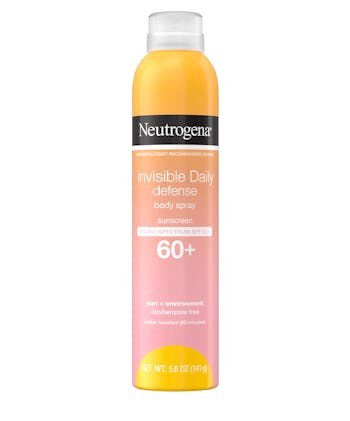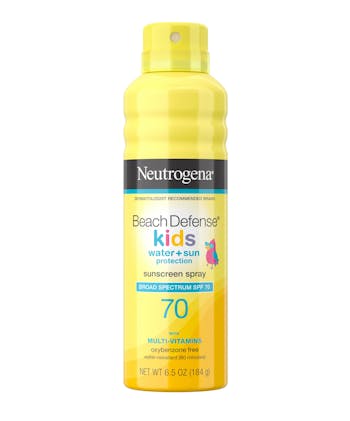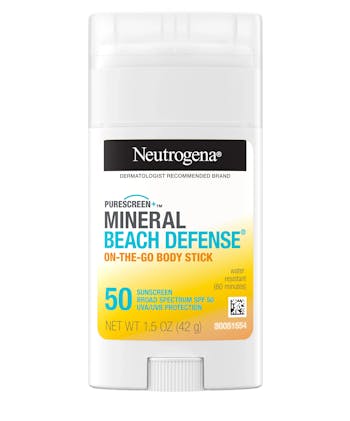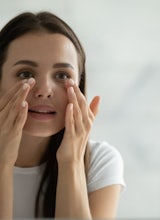Le damos la bienvenida tanto a quienes aman el sol como a quienes buscan la protección de la sombra, ¡es hora de hablar del protector solar! El protector solar es más que un frasco en tu bolso de playa: es tu primera línea de defensa contra el daño producido por el sol. Pero, ¿debes usar protector solar todos los días? Vamos a descubrir por qué el SPF debería ser el mejor amigo de tu piel durante todo el año y cómo incluir el protector solar en tu rutina diaria de cuidado de la piel.
¿Cómo incorporar el protector solar a tu rutina diaria de cuidado de la piel?
A menos que salgas de la cama y simplemente te pongas algo de ropa antes de dejar tu casa (sin juzgar), tu rutina matutina probablemente se parezca a esto: te levantas después de postergar la alarma un par de veces. Luego tomas una ducha tibia para terminar de despertarte. Te aplicas un limpiador suave para lavarte el rostro y luego te colocas una crema hidratante para adecuada para tu tipo de piel.
En función del nivel de tu rutina de cuidado de la piel, también puedes aplicar una crema para ojos, tonificador y suero. Luego te arreglas el cabello y te maquillas (o no, tu decisión) y te cepillas los dientes. Una última sonrisa enorme frente al espejo antes de tomar tu bolso, una barrita de cereal y lanzarte al mundo para enfrentarte a los desafíos de la vida. Otra vez.
Un momento. Has olvidado algo. Te damos una oportunidad para adivinar.
Sí, te has olvidado de aplicarte protector solar.
Retrocede hasta el momento posterior al humectante (o suero). Haz una pausa. Este es el momento en el que debes aplicar con suaves masajes una cantidad de protector solar equivalente a una pequeña moneda sobre tu piel radiante. Recuerda que el sol no se toma vacaciones, así que el protector solar tampoco debería.
Consejos profesionales para el uso diario del protector solar
Bien, pero ¿cómo hacer para no olvidarse del protector solar? Estos son algunos consejos sencillos de los expertos:
Haz que forme parte de tu rutina de cuidado de la piel
Al igual que la limpieza y la humectación, haz que la aplicación de protector solar sea una parte no negociable de tu régimen diario de cuidado de la piel. Aplícalo después del último paso de tu rutina de cuidado de la piel, pero antes del maquillaje.
Establece recordatorios diarios
Programa una alerta en tu teléfono que te recuerde todos los días que debes aplicarte protector solar. Si los recordatorios visuales funcionan mejor para ti, coloca una nota autoadhesiva en tu espejo o escritorio.
Combínalo con un hábito ya establecido
Guarda el protector solar junto al cepillo de dientes, la cafetera o la correa de Fido para que forme parte de tu ritual matutino. Esto crea una asociación mental que consolida la práctica con el tiempo.
Lleva un protector solar en versión de tamaño de viaje
Lleva un tubo de protector solar pequeño y fácil de transportar en tu bolso para tener siempre una opción de reserva.
Beneficios del protector solar: ¿Por qué debes usar protector solar todos los días?
El protector solar no es solo para los días de playa o las comidas al aire libre en verano. Es un producto esencial de uso diario para proteger la salud de la piel y mantener su juventud.
Para entender por qué, echa un vistazo al lado oscuro del sol. La luz solar emite rayos ultravioleta A (UVA) y UVB y, sorprendentemente, hasta el 80% de estos rayos dañinos pueden atravesar las nubes. Esto significa que el sol puede llegar a tu piel incluso en los días grises.
Los rayos UVA penetran profundamente en la piel y descomponen el colágeno y la elastina. Esto acaba provocando signos precoces de envejecimiento cutáneo, como arrugas y líneas de expresión. Por otro lado, los rayos UVB son los principales responsables de las quemaduras solares y constituyen un importante factor de riesgo de cáncer de piel.
Lo que quizás no sepas es que no solo necesitas protector solar al aire libre: los rayos UVA también afectan tu piel en espacios interiores. Más del 50% de estos rayos pueden atravesar el vidrio, exponiendo tu piel a daños incluso mientras conduces, trabajas en una oficina o te sientas cerca de una ventana en casa. Esta exposición se acumula con el tiempo y puede causar problemas de la piel como hiperpigmentación y manchas solares. La exposición acumulada también aumenta el riesgo de padecer cáncer de piel.
Cómo elegir el protector solar adecuado
La regla de oro al ingresar al mundo de la protección solar es seleccionar un protector solar que cubra tus necesidades específicas. Esta guía te ayudará a realizar una búsqueda inteligente.
Entender las fórmulas de los protectores solares
Los protectores solares vienen en dos formulaciones principales: química y física.
Los protectores solares químicos contienen compuestos orgánicos (a base de carbono), como oxibenzona, avobenzona y homosalato. Estos ingredientes transforman los rayos UV en una pequeña cantidad de calor, que luego se libera de la piel. Los protectores solares químicos suelen ser más ligeros y se extienden más fácilmente, lo que los hace adecuados para el uso diario debajo del maquillaje.
Los protectores solares físicos (minerales) contienen compuestos inorgánicos como óxido de zinc o dióxido de titanio. Actúan como una barrera física, reflejando y dispersando la radiación UV lejos de la piel. Es menos probable que los protectores solares físicos causen irritación ya que no se absorben tan profundamente en la piel. Por eso, son ideales si tienes piel sensible, acné o rosácea
Opta por una protección de amplio espectro
Los protectores solares de amplio espectro están formulados para brindar protección contra los rayos UVA y UVB. Los dermatólogos recomiendan seleccionar un protector solar con SPF 30 o superior, que filtra aproximadamente el 97% de la radiación UVB. Si tienes pequeños en casa, las fórmulas en aerosol de amplio espectro y secado rápido pueden ser un excelente protector solar para niños.
Usa protector solar resistente al agua en los días con mucha actividad
Cuando se trata del mejor protector solar para practicar deportes u otras actividades al aire libre, opta por un protector solar resistente al agua. Estos protectores solares ofrecen hasta 80 minutos de protección cuando te expones al agua, ya sea mientras nadas o frente al sudor. Pero tendrás que volver a aplicarlo después de que transcurra este tiempo, especialmente después de secarte con toalla.
Selecciona un protector solar adecuado para tu tipo de piel
Elegir el protector solar correcto también implica conocer tu tipo de piel. Para la piel grasa o propensa al acné, los protectores solares no comedogénicos son una buena opción, ya que no obstruyen los poros. Si tienes piel grasa y quieres reducir el brillo, considera usar un protector solar sin aceite con acabado mate. Los protectores solares en gel también son ligeros y no grasos.
Si tienes piel seca, podrías aprovechar los beneficios de un protector solar en crema que incluya ingredientes humectantes como ácido hialurónico, glicerina o ceramidas. Si tienes piel sensible, busca protectores solares minerales etiquetados como "sin fragancia" e "hipoalergénicos" para reducir el riesgo de irritación.
Considera el protector solar para el rostro versus el protector solar para el cuerpo
Prueba utilizar dos tipos de protector solar: uno formulado para el rostro y otro, para el cuerpo. La piel del rostro es más fina y más sensible al acné, la irritación y el envejecimiento prematuro. Entonces, dale un poco de cariño con una fórmula más ligera y menos grasa que incluya propiedades antiedad o humectantes. Los protectores solares corporales están diseñados para brindar una cobertura más amplia y suelen tener una fórmula más potente.
Cómo aplicar protector solar de forma correcta
Es fundamental aplicar protector solar de manera correcta para proteger adecuadamente la piel. Aplica protector solar sobre la piel seca al menos 15 minutos antes de salir al aire libre. Esto le da tiempo suficiente para formar una barrera protectora en la piel. Debes usar aproximadamente 1 onza (suficiente para llenar un vasito de licor) para todo el cuerpo.
Asegúrate de aplicar bien el protector solar en todas las áreas expuestas, incluido el cuello, el rostro, las orejas, los empeines y las piernas. Si no puedes llegar a lugares como la espalda, pide ayuda a alguien o usa un protector solar en aerosol para que la aplicación sea más fácil.
Recuerda volver a aplicar protector solar cada dos horas o con más frecuencia si estás nadando, sudando o secándote con una toalla.
Evita errores comunes
Para proteger tu piel de los dañinos rayos del sol, evita estos errores comunes de aplicación:
No aplicar la cantidad suficiente
Muchas personas no usan suficiente protector solar. Recuerda que la mayoría de los adultos necesitan aproximadamente 1 onza para una cobertura total.
Partes del cuerpo en las que no se aplica
Las áreas que comúnmente se pasan por alto incluyen la parte superior de las orejas, la línea del cabello y la parte superior de las manos y los pies. Asegúrate de aplicar protector solar en estas partes del cuerpo.
No volver a aplicar protector solar
Recuerda: vuelve a aplicar protector solar al menos cada dos horas o antes si estás nadando o sudando.
Utilizar un protector solar vencido
El protector solar vencido puede no ser tan eficaz. Verifica siempre la fecha de vencimiento y reemplázalo cuando sea necesario.
Pregunta: ¿qué vas a hacer mañana después de lavarte la cara y ponerte crema hidratante? Respuesta: aplicarte protector solar. Si crees que te puedes olvidar, coloca el protector solar cerca de tu cepillo de dientes como recordatorio.
Preguntas frecuentes
¿Qué nivel de SPF debe tener mi protector solar?
Elegir el factor de protector solar (SPF) correcto en tu protector solar depende de tu tipo de piel y del nivel de exposición al sol que anticipas. Para la mayoría de las personas, un protector solar de amplio espectro con SPF 30, como mínimo, está bien. Sin embargo, para las personas que tienen la piel más clara o son propensas a sufrir quemaduras solares, es mejor utilizar un protector solar con SPF 50 para una mayor protección.
¿Es seguro el protector solar?
El protector solar es una herramienta esencial para mantener la piel sana. Protege contra los rayos UV que pueden causar envejecimiento prematuro y un mayor riesgo de padecer cáncer de piel. Por consiguiente, usar protector solar es un componente seguro y esencial del cuidado de la piel.
¿Es suficiente el SPF 30?
El protector solar SPF 30 suele ser suficiente para el uso diario, ya que bloquea aproximadamente el 97% de los rayos UVB. Sin embargo, si vas a pasar mucho tiempo al aire libre o estimas que estarás bajo la luz solar directa durante las horas pico, usar un protector solar con un SPF más alto puede brindar protección adicional.
¿Con qué frecuencia debes volver a aplicar protector solar?
Vuelve a aplicar protector solar al menos cada dos horas. Si está nadando, sudando o secándose con una toalla, deberás volver a aplicarlo con más frecuencia. Un SPF más alto no significa que no sea necesario volver a aplicar protector solar: debes cumplir la misma regla de las dos horas ya sea que uses SPF 30 o 50.
¿Cuánto dura un protector solar?
Esta respuesta puede variar, así que siempre verifica la fecha de vencimiento que aparece en el frasco de protector solar. Usar protector solar que no está en buen estado puede brindar una protección UV inadecuada. Para asegurarte de que tu protector solar mantenga su eficacia, guárdalo en un lugar fresco y seco.












